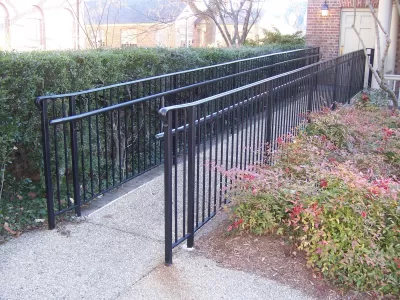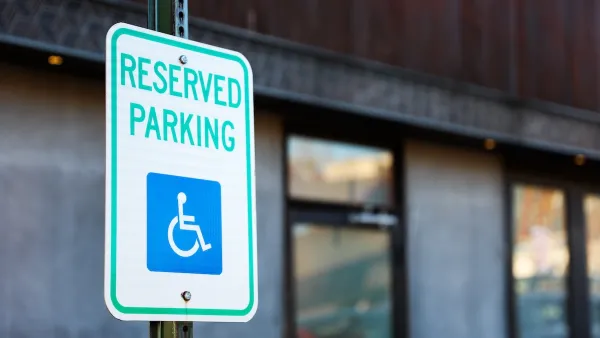Beyond adding more housing to the market, fourplexes could bring a lot more federally mandated wheelchair accessibility to Portland.

Shifting demographics in the United States are going to create new needs in the housing market, and the greater Portland area is likely to be particularly hard hit. "Over the next 10 years, hundreds of thousands of Cascadian seniors are going to lose the ability to walk easily—and they don’t know it yet," Michael Andersen writes for Sightline. The area does not have the housing stock to accommodate an aging population. Andersen argues that an important zoning change may alleviate some of the pressure.
"It’s the movement to re-legalize 'middle housing' options like duplexes, triplexes, fourplexes and accessory dwellings," Andresen writes. These more dense housing styles are generally argued for in terms of providing more dense housing where people want to live, adding more variety to housing market or bringing down the cost of homes, but Andersen points out they would have another side benefit.
"Under the Fair Housing Act, the fourth home within any structure triggers a requirement that every new ground-floor home, and every home in buildings with elevators, be wheelchair-accessible," Andresen writes. In most of Portland it would be illegal to build a fourplex at all, but if they were allowed to come onto the market they could mean a lot more housing options for those whose choices are currently badly limited.
FULL STORY: OUR BANS ON STACKED HOMES ARE BANS ON AGE-READY HOMES

Maui's Vacation Rental Debate Turns Ugly
Verbal attacks, misinformation campaigns and fistfights plague a high-stakes debate to convert thousands of vacation rentals into long-term housing.

Planetizen Federal Action Tracker
A weekly monitor of how Trump’s orders and actions are impacting planners and planning in America.

San Francisco Suspends Traffic Calming Amidst Record Deaths
Citing “a challenging fiscal landscape,” the city will cease the program on the heels of 42 traffic deaths, including 24 pedestrians.

Defunct Pittsburgh Power Plant to Become Residential Tower
A decommissioned steam heat plant will be redeveloped into almost 100 affordable housing units.

Trump Prompts Restructuring of Transportation Research Board in “Unprecedented Overreach”
The TRB has eliminated more than half of its committees including those focused on climate, equity, and cities.

Amtrak Rolls Out New Orleans to Alabama “Mardi Gras” Train
The new service will operate morning and evening departures between Mobile and New Orleans.
Urban Design for Planners 1: Software Tools
This six-course series explores essential urban design concepts using open source software and equips planners with the tools they need to participate fully in the urban design process.
Planning for Universal Design
Learn the tools for implementing Universal Design in planning regulations.
Heyer Gruel & Associates PA
JM Goldson LLC
Custer County Colorado
City of Camden Redevelopment Agency
City of Astoria
Transportation Research & Education Center (TREC) at Portland State University
Jefferson Parish Government
Camden Redevelopment Agency
City of Claremont





























